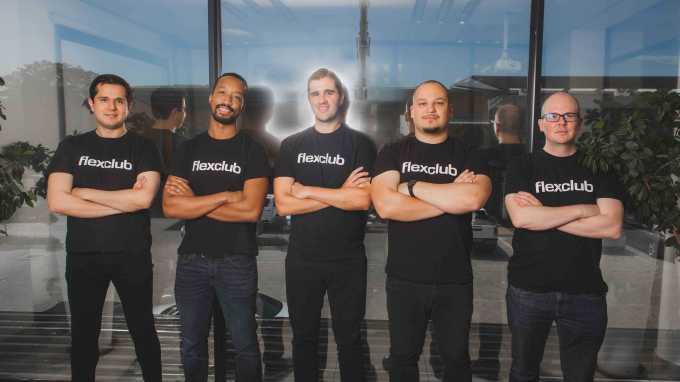Primary care startup Forward Health is looking to expand its tech-powered, personalized healthcare model across the U.S., and will use a new $225 million Series D raise to help make it happen. The new capital comes from Founders Fund, Khosla Ventures, SoftBank, Mark Benioff – and recording artist The Weeknd – among others. I spoke to Forward Health co-founder and CEO Adrian Aoun about his company’s plans for this fresh capital, and we also chatted briefly about how The Weeknd got involved.
Forward, which currently operates clinics in select U.S. markets including LA, New York, Chicago, SF and Washington, D.C., has a number of distinguishing features, but most notable are likely its tech-first approach that includes a full biometric assessment upon first visit, and its business model, which eschews insurance providers altogether and instead works based on a single flat membership fee.
Aoun and his co-founders created Forward Health with the idea of building a healthcare business that’s aligned with its customers in terms of incentives, which is why they sidestepped insurance altogether. That’s led to a focus on customer service and long-term patient relationships and outcomes, which Aoun says are stronger because they’re not bound by an individual’s relationship with their employer, for instance, which is often the case when an employer foots the bill for healthcare via company-provided insurance.
“The average person in the Bay Area is with their employer for about two and a quarter years,” Aoun told me. “So your employer is kind of sitting there thinking, if you get the flu, you’re missing three days of work – I’m out some money.” That means they’ll do things like institute programs to remind employees constantly to get their annual flu vaccine, and do other things to make that happen like provide on-premise shots. But Aoun says they’re optimizing for short-term outcomes, not long-term health – because that’s where their incentives tell them to optimize.
But when long-term healthcare programs, like lifestyle shifts that can lessen the potential of truly dangerous outcomes like heart disease and cancer, come into play, an employer who expects you to stick around for a few years at most is far less incentivized to want to fund that. Forward Health, which aims to attract subscribers and, for lack of a better term, minimize churn, actually is incentivized to make those long-term outcomes positive for everyone who comes through the door.
That’s part of why one focus with this new funding is to debut new doctor-led programs tailored to treating conditions that individual patients might be predisposed to – like heart health, if heart disease runs in your family, or specific types of cancer, if there’s a history of that, for instance.
“We’ve got our [in-clinic] body scanners, our blood tests, our gene sequencing – we basically collect on the order of about 500 biometric data points,” Aoun said. “The idea is you and your doctor then figure out which which kind of programs make sense for you based upon those.”
For example, Aoun says he’s actually at fairly high risk for developing heart disease, so there’s a Forward program that includes doing a heart risk analysis, blood tests, and regular at-home monitoring of key risk factors like blood pressure and weight. Another program for cancer prevention includes measures designed to help lessen the risk of contracting the top five cancers in terms of prevalence — so Forward created a dermatoscope for that, which is essentially a skin scanner to map out an individual’s moles and skin features and alert them of any changes.
This builds on work that Forward began at the outset of COVID-19 — its ‘Forward at Home’ program, which includes sending patients home with specialized sensors for remote care. Another specialized program tailored to COVID-19 actually offers monitoring specific to the disease in order to track a patient’s progress safely.
“We’re now launching programs for all the top diseases to help you get ahead of them,” Aoun said. “And whatever kind of programs you’re using, you walk away with plans that are tailored to you, again, to counsel you not only on the potential risks for the things like the cancer and heart disease, but also to be proactive, with guidance from diet, to exercise, to stress, and to sleep, etc.”
The programs are supported by Forward’s 24/7 worldwide care support team, which subscribers can access via their mobile app. It’s also complemented by the check-ins with your physician via the ‘Forward at Home’ in-home virtual visits.
While Forward is already rolling these out, it has plans to continue to develop new ones, and it’s also monitoring results in order to understand how they’re working for users, and will be sharing that data once it has collected a significant sample. I asked Aoun how Forward can scale this kind of personalized care – especially now that the startup plans to open additional locations in other parts of the country.
Basically, Aoun said that Forward approached it as an engineering problem. He argues that most solutions in healthcare see the fundamental issue as a labor problem — but trying to scale that, with the salaries that medical professionals command, and the limited availability of skilled talent, makes no sense. Especially because consumers are naturally looking for improvements in their standard of care over time, in the same way they expect improvements in the products they buy or services they use.
Rather than relying on a chain of increasingly specific medical professionals to address individual health risks and needs, Aoun said Forward identified that there’s a massive amount of overlap in preventative care courses of action. The Forward team focused on breaking the fundamental elements down into what equate roughly to reusable Lego blocks, which can be recombined with relative speed and repeatability to produce a program that’s nonetheless tailored to an individual’s needs.
Combined with Forward Health’s longitudinal approach to care, these programs and their recombinant nature should prove a good dataset from which to assess how a direct, client-focused primary care model affects overall health.
And, because I promised, I’ll leave you with how Aoun says The Weeknd got involved in the Series D.
“He literally just walked by one of our locations, and walked in and was like, ‘This is awesome,’ and then asked a friend, who asked a friend, who asked a friend to get connected,” he told me.







